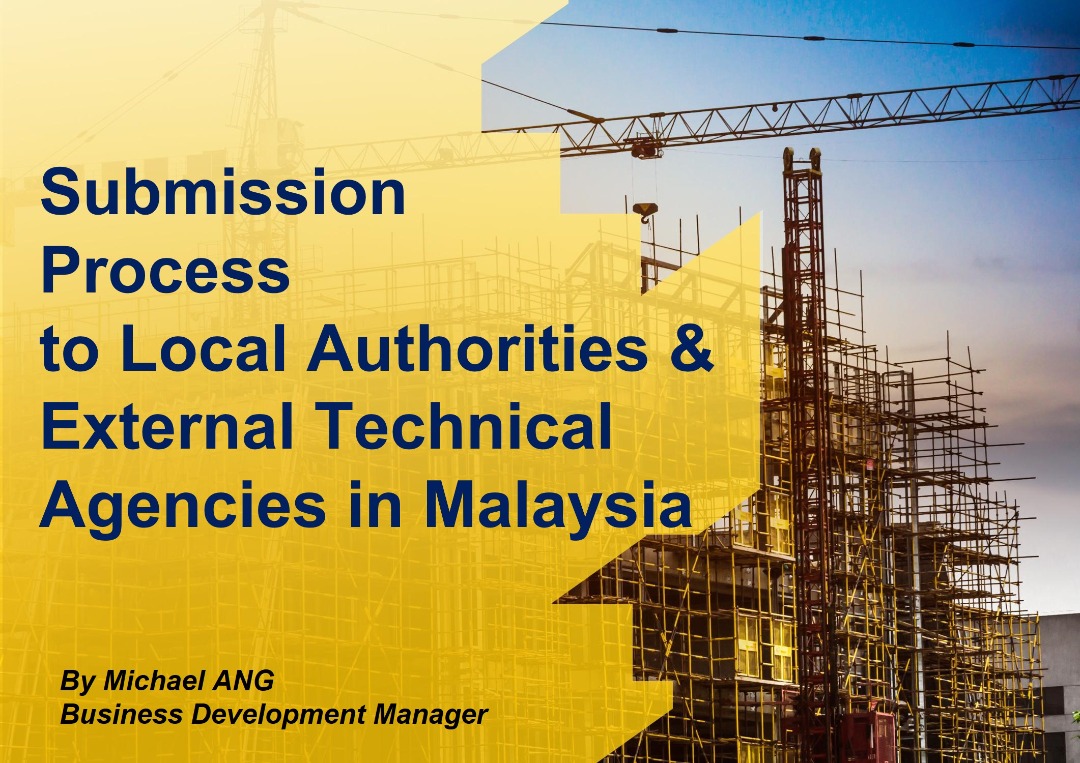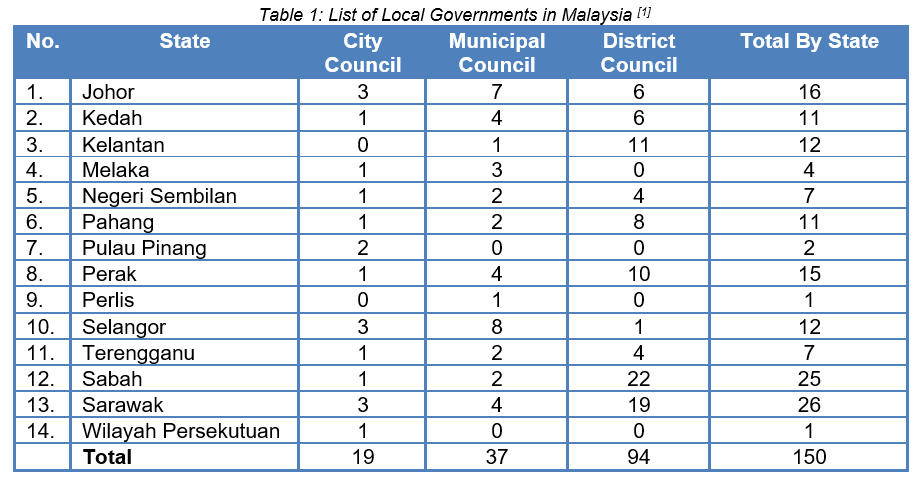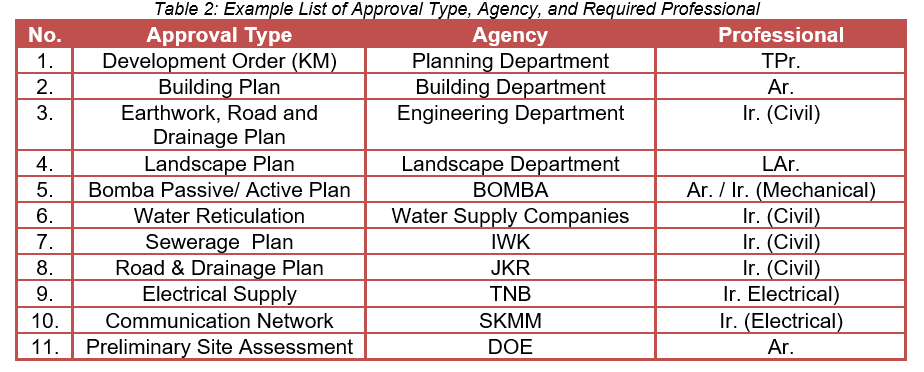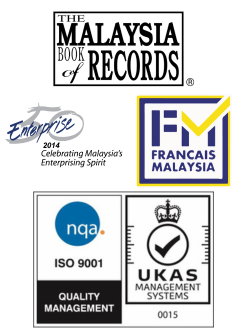Author: Michael ANG | 28 April, 2022
Malaysia is categorized as one of the developing countries based on the gross domestic product (GDP) and gross national income (GNI) per capita indexes. The construction industry is one of the main contributors to Malaysia’s GDP. Although the construction industry is vital to growing the Malaysia economy, developers, landowners, or appointed professionals had always gone through the tough and lengthy way to get the necessary approval from local authorities and external technical agencies for the proposed developments. Several factors contributed to the lengthy approval process, which includes inconsistent requirements from different local authorities and officer-in-charges, involvement of multiple technical agencies, protracted processing time, etc.
Any property development proposal in Malaysia is required to obtain several stages of approval from the internal technical agencies in a local authority and multiple external technical agencies dependent on the complexity of the proposed development. Generally, the internal technical agencies involved in the local authorities are Planning Department, Building Department, Engineering Department, and Landscape Department, while the involved external agencies include but are not limited to the Fire and Rescue Department (BOMBA), Public Works Department (JKR), water supply companies (e.g. Ranhill SAJ, Air Pahang, and Air Selangor), Indah Water Konsortium (IWK), Tenaga Nasional Berhad (TNB), Malaysian Communications and Multimedia Commission (SKMM), Department of Environment (DOE), etc. As of the date of writing, there are total 150 local authorities in Malaysia as shown in Table 1.
The approval required from different agencies for a Certificate of Completion and Compliance (CCC) application is subjected to the different local authorities’ requirement and advice. It is highly dependent on the development scales, locations, type of developments, etc. In general, the approval types as listed in Table 2 are the basic approvals required for most of the submissions. To obtain all approvals from different agencies, a team of professional consultants is required, which include but is not limited to Professional Town Planner (TPr.), Professional Architect (Ar.), Professional Engineer with Practising Certificate (Ir.), or Professional Landscape Architect (LAr.), depending on their expertise of work according to the respective approval submission process. Most of the time, a Professional Architect or Professional Civil Engineer (for industrial project) will act as Principal Submitting Person (PSP).
A. PRE-SUBMISSION STAGE
Pre-consultation with all relevant agencies is highly advisable before preparing for any official submission. PSP shall get advice from relevant agencies in regards to their respective requirements for different submissions. The pre-consultation is encouraged so that the PSP could prepare all documents and drawings based on authorities’ requirements and avoid any preventable mistakes which may prolong the period of obtaining the approval.
To avoid rejection or unnecessary comments from local authorities, PSP shall prepare all relevant documents accordingly to the official submission checklist as provided by the internal technical agencies. Documents such as copies of the project owner’s IC/ developer’s SSM documents, latest quit rent, assessment tax, land title, etc, shall be requested from the client as part of the submission documents. Sufficient time shall be also given to the client to prepare all required documents and PSP shall also check thoroughly on the documents submitted by the client. All documents must be ensured up-to-date and are certified true copies if required by the agencies.
During the design stage, the efficiency and effectiveness of drawing preparation are also crucial in expediting the overall approval process. PSP shall first understand the requirements of the client before proceeding with the design process to avoid unnecessary design changes. Besides fulfilling the client’s requirements, PSP shall also ensure the designs are comply with respective laws, regulations, and guidelines. Before official submission, all proposed designs shall be agreed upon and accepted by the client to avoid further design changes during the submission stage, which will likely delay the approval process.
B. SUBMISSION STAGE
Internal Technical Agencies
All submission documents and drawings shall be submitted via OSC Online for review before hardcopy submission could be done. The assigned officer will review the online submission to identify whether all submitted documents and drawings are in order. Generally, relevant comments or feedbacks will be reverted to PSP at least 7 working days. The typical comments from the OSC officer include additional required documents, outdated documents submitted, undesired drawing formatting, etc. PSP shall monitor closely for any comment given and shall amend accordingly for resubmission.
PSP shall proceed with hardcopy submission upon the online submission is deemed satisfactory by the agencies. PSP shall ensure the necessary drawings and documents are prepared in sufficient sets as required by the agencies. All drawings and documents shall be also ensured of being signed and endorsed by the client and professionals, whichever is necessary. All these must be checked properly before submission to avoid further unnecessary comments from the agencies which will delay the approval process. Upon hardcopy submission to the OSC counter, the assigned officer shall ensure the submission documents are completed before accepting the submission. Subsequently, the OSC department would distribute the submitted documents to relevant agencies (both internal and external technical agencies) for comments and approvals.
External Technical Agencies
Approval or support is required from external technical agencies before the internal technical agencies approve the Development Order application, Building Plan application, as well as Infrastructure Plan application. Most of the submissions shall be done in hardcopy except IWK and some water supply companies which need to be done through online submission first. Similar to OSC submission, all hardcopy submissions to external technical agencies shall be prepared according to the respective official checklist. All documents and drawings shall be signed and endorsed by the client and professionals, whichever is required.
C. POST SUBMISSION STAGE
Upon hardcopy submission, a close follow-up with the officer-in-charge is required to ensure a prompt response from the relevant agencies. The submitted documents and drawings shall be reviewed by the assigned officers and the comments (if any) shall be reverted to PSP for further amendments before the supporting letter (i.e. “tiada halangan” or “sokongan bersyarat”) could be issued. PSP shall amend the submission based on the comments and requirements. For major changes or additional requirements which may incur higher construction costs and a longer construction period, it shall be highlighted and discussed with the client for further action. All documents and drawings shall be resubmitted to the agencies once the amendments had been completed.
Once all internal and external technical agencies have no objection and issue supporting letters, the approval for the submission will be granted from the agencies. Endorsed submission drawings will be then reverted to the PSP for records. With the granted approval, construction is allowed to commence after submitting Form B to notify the agency.
CONCLUSION
In conclusion, dealing with various of technical agencies is always a challenging process. To ensure a smooth approval process, the client is encouraged to engage an experienced Professional Architect or Professional Engineer with Practising Certificate to assist them in handling the submission to internal technical agencies of a local authority and external technical agencies. Official approval from agencies is crucial in ensuring the constructed building complies with the laws, regulations, and guidelines so that the client will face no issue in the later stage.
Michael ANG
Business Development Manager
IPM Professional Services Sdn Bhd
References:
[1] Wikipedia: List of local governments in Malaysia. Retrieved on 28th April 2022 from https://en.wikipedia.org/wiki/List_of_local_governments_in_Malaysia



